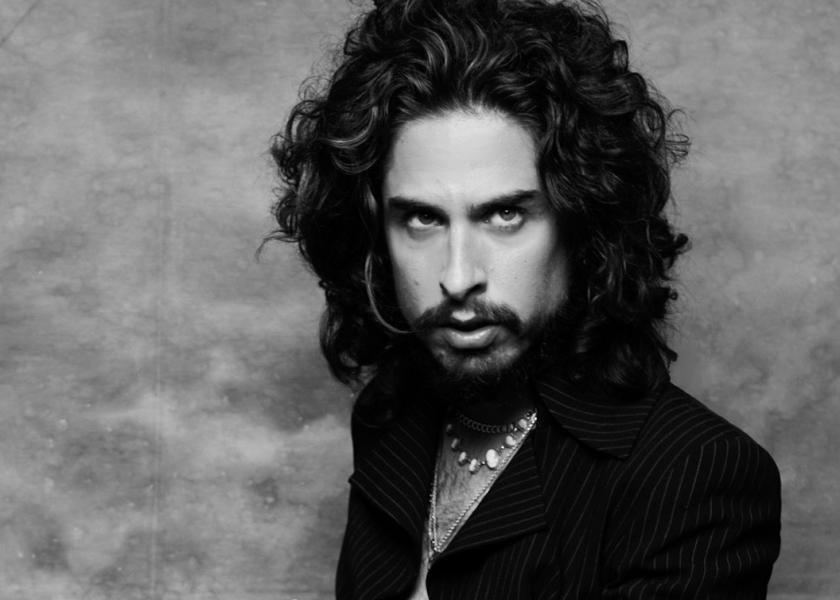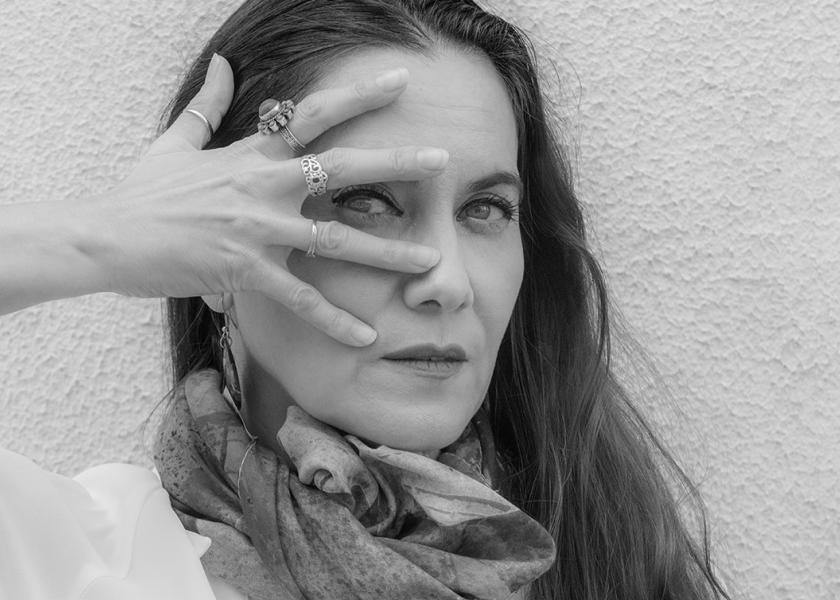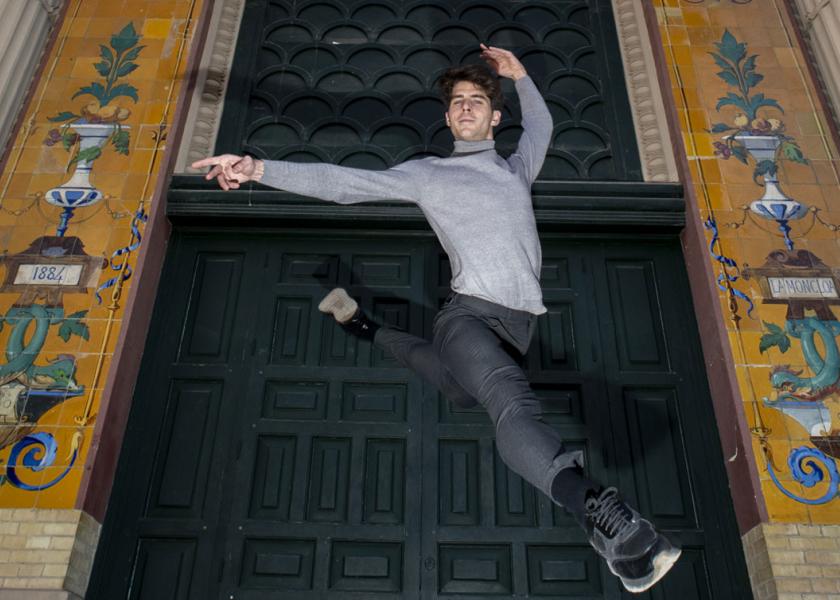Jesús Carmona
Flamenco is in his blood
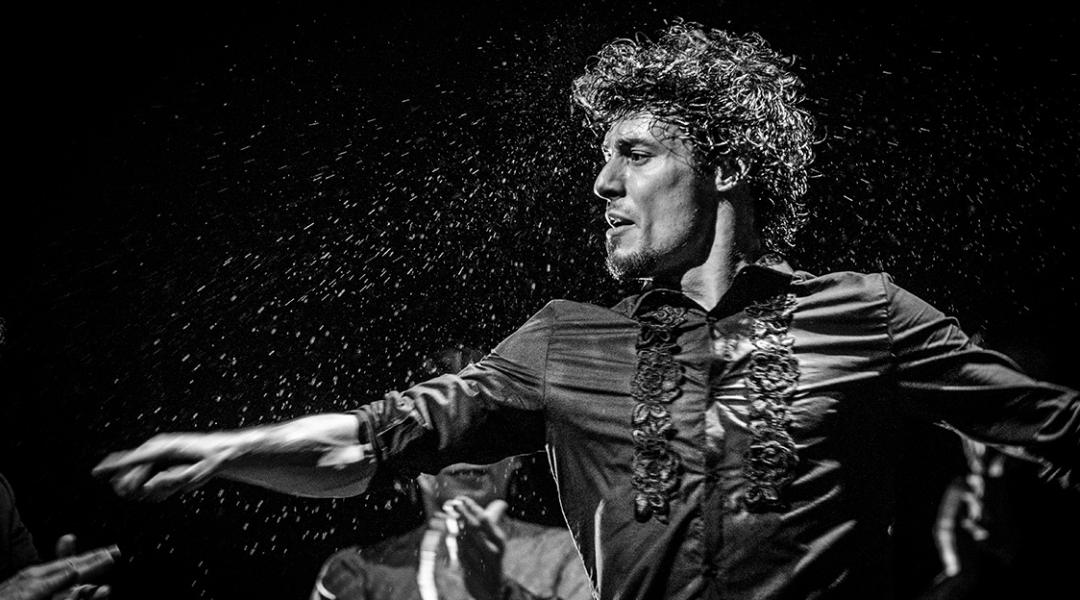
Even though there was no flamenco on at Jesús Carmona’s house when he was little, its rhythm was already coursing through his veins. He started out at the tender age of seven, and, with hard work and talent, is now one of the most well-regarded flamenco dancers in the world. His authenticity onstage has won him the 2021 Benois de la Danse —known as the Oscars of dance—. His secret: being involved and remaining humble.
Out of all the expressions of Spanish culture, few are as unique, symbolic, and full of character as flamenco. They say that in flamenco dance and singing lies the pureness of art and human truth: only lived experiences are sung and danced, bringing together the essence, spirit, and roots of its peoples. The performance world is constantly evolving, and this has meant this art has had to reinvent itself and let go of its clichés to continue winning people over. Jesús Carmona (Barcelona, 1989), the current artistic director of the Spanish Ballet of the Community of Madrid, is one of the main culprits of this phenomenon and many see him as one of the main figures of flamenco dance around the world. Although he will first go to Espacio Iberia (27 June, 19:00h), now he is currently wrapped up in his new performance, Superviviente, which will première on the 26th of September at the University of Navarra and closes a season of creations born from personal experiences. Being involved and remaining humble are the foundations for the passion of this dancer who became interested in this discipline as a young boy.
You started dancing flamenco when you were just seven years old; where did this passion come from?
Very naturally and inadvertently. In my family, there was no precedent of flamenco artists, and we didn’t used to listen to that kind of music at home either. Despite this, I knew I wanted to dance flamenco since I was three or four, so I insisted and almost forced my parents to find somewhere where I could learn it and practice it.
During your formative years, who were your role models?
My big role model was Sonia Poveda, my first teacher. I always say I was incredibly lucky with her. She taught me strong foundations for the proper development of my professional career. I’ve also been lucky enough to work with real role models, like Antonio Canales or Eduardo Serrano El Güito.
“Onstage I enter a dreamlike place where I allow myself to be anything, where all the pressures imposed by society disappear and I´m absolutely free”
Now, however, you’re the role model. What advice would you give the upcoming generation of flamenco dancers?
First, I’d tell them that to live off this you need to give it your all. Flamenco dance can’t be half done if you really want to live off it. Second, you need to be humble with yourself, with colleagues, with the profession, and with the art itself. This makes the artist’s grandeur even greater.
On occasion you have said that art opens the soul to a place of understanding. As art, what effect does flamenco have on the audience?
Dance uses no words, so the discourse is created through the emotions that it arouses. To understand this discourse, the audience doesn’t need to be very knowledgeable, but they do need to be inclined towards experiencing these feelings. Flamenco dance, as the minority art that it is, plays the role society allows it to.
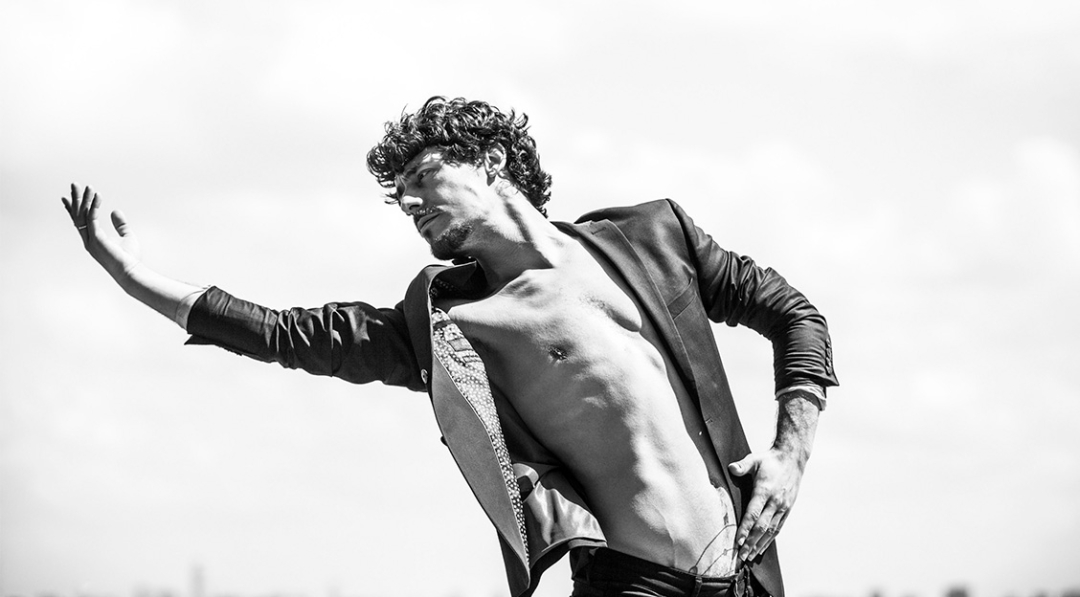
Jesús Carmona, from Barcelona, is currently preparing his upcoming performance, called 'Superviviente'. © Lulo Rivero
Despite its minority status, flamenco dance is alive and well. What does its future look like?
I cannot say what its next steps should be, but I do believe that flamenco dance is in good health when it comes to performers and creators, who push and fight for this art to continue to grow. People are betting on flamenco both nationally and internationally, and this was very much needed. More grants, more spaces, more audiences and above all, more dance training at schools will always be necessary, but we’re in a good place right now.
As well as physical effort, flamenco involves a huge emotional commitment. How would you describe the moment you are dancing?
For a performer, climbing onstage is an absolute pleasure despite the monumental physical effort it entails. I enter a dreamlike place where I can allow myself to be anything, in which the weight of the patriarchy, for example, doesn’t exist, where all the pressures imposed by society for so many years suddenly disappear and I´m absolutely free to be who you want to be.
“More grants, more spaces, more audiences and above all, more dance training at schools will always be necessary, but we’re in a good place right now”
And what would you like to convey to everyone watching you from the stands?
I like to convey authenticity, for the audience to feel that they are being told something that is coming from my gut, from my soul, from my heart, and that I’m not holding anything back. I want them to leave the theatre with a feeling of complete surrender from the artist.
Your talent has received plenty of recognition, including the 2021 Benois de la Danse for Best Danseur. What did this mean to you?
I was the second Spaniard to win it in 45 years. I also did it with a lineup of the best classical dancers in the world. So, for me to win as a flamenco dancer is a huge achievement. I’m very aware of how valuable it is, not just for me, but for Spanish dance, for flamenco, and for our country.
“I like to convey authenticity, for the audience to feel that they are being told something that is coming from my gut, from my soul, from my heart, and that I’m not holding anything back”
Talent is a concept that is hard to describe, to summarise, but could you try to?
I believe talent is something that cannot be explained, something that grows with hard work and that makes the audience home in on someone when they are watching the whole cast during a performance. As I’ve said, it only comes with a lot of hard work, but there is something innate about it. The main thing is to recognise your own talent and strengthen it.
